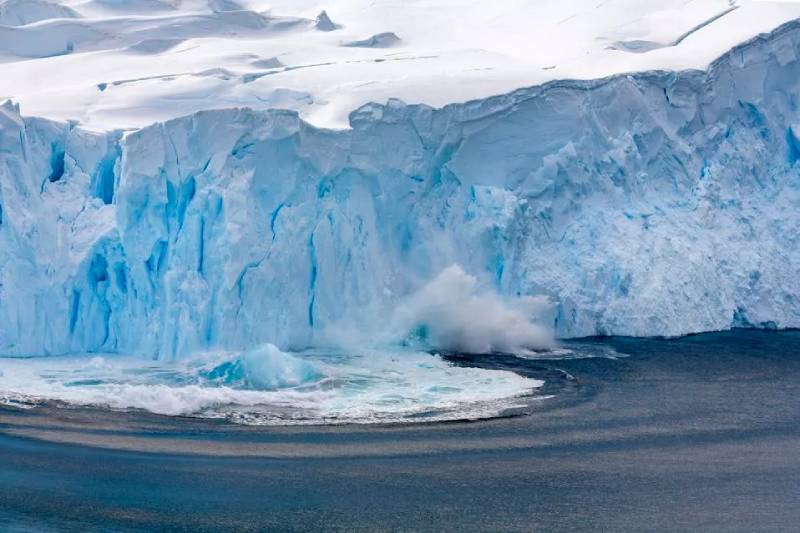Over the past 25 years, more than 40 percent of Antarctica’s ice shelves have diminished, potentially accelerating sea level rise by allowing more land ice to flow into the ocean, according to new research. The extent of ice shelf thinning is more widespread than previously thought, suggesting that the continent is feeling the effects of higher global temperatures. These ice shelves, which act as walls, play a crucial role in slowing the flow of ice on land into the ocean. When they thin or retreat, the ice on land can flow into the ocean more quickly, contributing to sea level rise. Antarctica and Greenland are responsible for over one-third of total sea level rise in recent decades.
The research analyzed over 100,000 satellite images from 1997 to 2021 and found that 71 of the 162 ice shelves surrounding Antarctica have decreased in volume. Almost 50 of them lost more than 30 percent of their initial mass during those years. The large portion of steadily shrinking ice shelves indicates that the natural cycle of growth and retreat is off.
The largest portion of shrinking ice shelves was found on the western side of Antarctica, where warmer water can erode the shelves from underneath. In contrast, most ice shelves in East Antarctica increased in volume or remained the same. The east is protected by a band of cold water at the coast that keeps nearby warm water at bay, although pockets of shrinking ice shelves have been observed.
This study’s findings confirm the trend observed in previous research, indicating that ice shelves in Antarctica are retreating and thinning due to warming global temperatures. While researchers have not definitively connected these changes to climate change, they align with climate models that predict ice shelves will continue to shrink as the world warms, eventually reaching a tipping point that could lead to a millennial period of ice sheet disintegration.
The thinning of ice shelves has consequences for sea level rise, global ocean circulation, and climate patterns, making it a topic of growing concern in the face of a changing climate.
Disclaimer: The views, suggestions, and opinions expressed here are the sole responsibility of the experts. No Atlantic Brief journalist was involved in the writing and production of this article.


